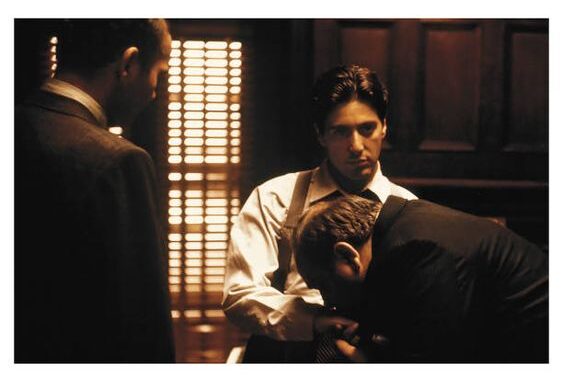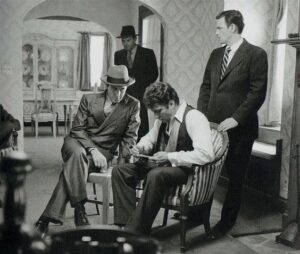
Looking back at the Arab world’s obsession with remaking ‘The Godfather’

DUBAI: Remakes of Western TV shows and films are all the rage in the Middle East these days and considering the hype over “The Offer,” which dramatizes the making of iconic film “The Godfather,” we take a look at the attempts by Arab filmmakers to remake the Mafia movie.
“The Offer,” now streaming on OSN+ in the region, follows film producer Albert Ruddy as he fights to bring the cinematic masterpiece to the silver screen.
Regarded as one of the greatest movies ever made, 1972’s “The Godfather” is about an Italian mafia family headed by Don Vito Corleone, played in the first of a trilogy of films by Marlon Brando. Corleone decides to hand over his empire to his youngest son Michael, played by Al Pacino. However, his decision puts the lives of his loved ones in grave danger.
Not only was the movie influential in the West, but it also inspired filmmakers and production houses in the Middle East.
In 2015, the late Syrian director Hatem Ali created an Arabic version of “The Godfather” for TV called “Al-Arrab” and even borrowed the US film’s iconic logo.
The two-part series, “Al-Arrab: Taht Al-Hezam” and “Al-Arrab: Nady Al-Sharq,” starred Jamal Soliman, Bassem Yakhour, Basel Khayat and Amel Bouchoucha, but was it any good?
Essam Zakaria, an Egyptian critic and artistic director of the Alexandria Film Festival for Mediterranean Cinema, thinks not, describing it as “an inferior production. The story and the details are not convincing.”
According to Saudi film critic and actor Baraa Alem, one of the reasons some remakes are unsuccessful is because they lack the cultural references of the productions on which they are based.
“When you take something that is internationally acclaimed … you cannot just expect me to forget about it totally and re-receive the story from your end as a new story,” he said.
“You talk about ‘The Godfather’ and we remember Marlon Brando and Al Pacino, and whoever you are going to put in that place is never going to have the same emotional load that we have for these characters. You can take the theme and remake it, but you cannot take the cultural aspect. That’s why I find that it is so hard for a remake to succeed.”
Lebanese critic and writer Jamal Fayad said the challenge was in changing the production from a movie to a TV show.
